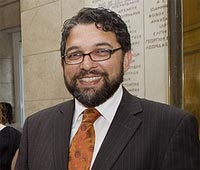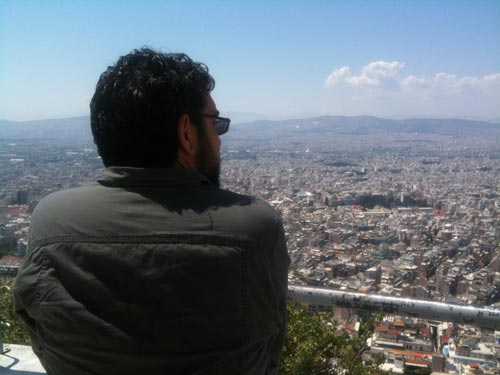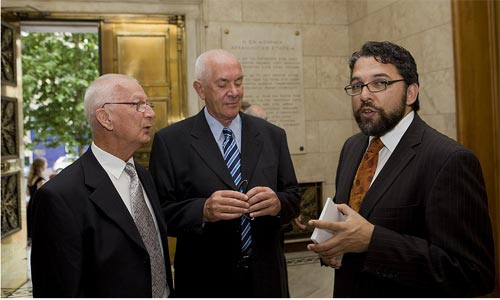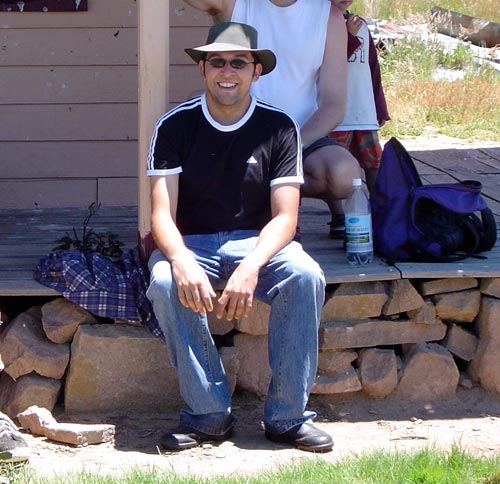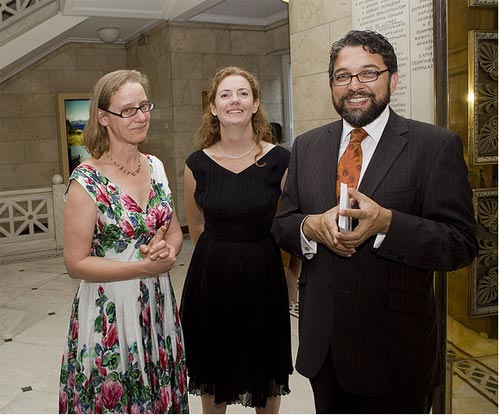Wayne Mullen – Chief Operating Officer, Australian Archaeological Institute at Athens
Why do you think archaeology is important?
As a subject archaeology helps to reveal the vast diversity of human experiences at a global scale and across a huge gulf of time. It can help us to understand why societies are successful or fail, why civilisations rise and fall, how ideas propagate and how humanity expresses itself through culture. Archaeology can show us strange gods, magnificent treasures and cultures staggeringly different to our own.
If we ignored archaeology we could easily live a blinkered existence believing that our own society and its cultural norms are the only way in which life can or should be lived.
When did you know you wanted to be an archaeologist, and what was it that made you want to be one?
When I was a little boy, about the age of three or four my family lived in England and I was obsessed with Archaeology and also with Dinosaurs. I spent much time vexing my mother by digging up her flower-beds in the hope of finding a Tyrannosaurus Rex or something archaeological. One day, after spending a pleasant afternoon destroying a newly planted row of marigolds and tulips I found a tiny skeleton, which I declared to be a dinosaur. It was only a very small dinosaur so I packed it up into a Rothmans cigarette packet (my grandmother’s cigarette packet…don’t worry, I didn’t take up smoking as a toddler).
When I moved to Australia at the age of six and was reunited with my extended family I showed my cousin my prize possession. She stared at the tiny dinosaur in a cigarette packet for a long, long time before sighing. “You did know that my pet hamster was buried in your flower bed”, she said.
Anyway – my interest in the past lingered and developed through time. And although I am an archaeologist, I’ve never studied palaeontology and, therefore, still don’t really know the difference between a hamster and a dinosaur.
What study did you do to become an archaeologist?
I studied at the University of Sydney a Bachelor of Arts with majors in Fine Arts, Classical Archaeology, Near Eastern Archaeology and Historical Archaeology. I then undertook an honours year in Historical Archaeology where I wrote a thesis about the nature of neighbourhoods in the Rocks and Millers Point in Sydney in the 19th Century. I finally undertook a Ph.D about the British Empire in India and how racism impacted upon the way the British designed their settlements.
Perhaps those topics don’t sound very archaeological? Most of my archaeological research has centred on collecting data about large populations living in large (city-size) settlements. And most of my research was undertaken using historical maps as an analogue for the archaeological record. I see archaeology as analysing material objects distributed through space and in time and interpreting those artefacts through the lens of human behaviour. I think of a city as being as much of an “artefact” as a pot! I greatly appreciated having the time and funding to spend significant periods in London, Mumbai, Delhi and Pune to complete my research.
How long have you been an archaeologist?
I’ve been lurking in the profession since about 1989
What are some of the key jobs you’ve had?
I started my training in Chemical Engineering (I lasted only a very short time). I left when after I was caught putting doric columns on a Hydrochloric Acid Production Facility I had been given to design as part of an assignment. I still contend that the columns would not interfere with the production of Acid. (The ivy I drew onto the columns was just an artistic flourish, I would have happily sacrificed it, if need be).
I’ve held jobs as a Site Register Officer at National Parks and Wildlife Service, managing events at the Nicholson Museum and I work currently as the Chief Operating Officer of the The Australian Archaeological Institute at Athens.
What skills or capabilities do you think are important to being a good archaeologist?
There’s no point in working in this field without a good sense of humour or being able to deal with other people. Much of archaeology is a team effort and humour and people skills are always appreciated. Other than that – curiosity, and an ability to adapt. Archaeology…isn’t always the best funded of professions – being able to take what limited facilities you’re given and adapt, tweak and bang them into serving your needs is great fun.
What advice would you give to someone interested in this career?
To give yourself as many skills as possible and keep one eye on the opportunities that life sends you. There are more archaeologists than you think in Australia. Even though there are not that many academic positions there are a huge number of niches where you can create a rewarding career.
How do archaeologists spend their time?
I spend most of my day in management and administration. Perhaps that sounds dull, but I don’t really think so! Running a small research based arts institution offers many challenges that I thoroughly enjoy. A lot of what I do is dealing with people – our many donors and supporters. And I also spend a great deal of time trying to figure out how to make what we do more efficient so that our dollars go further. Without public support I wouldn’t have a job – so I try to engage with the public in as many ways as possible. I edit publications – manage the web site and use facebook, twitter and flickr to get our message out.
What’s been your worst experience in archaeology?
I was excavating an historical site in Sydney’s CBD that had been a tannery. I discovered that horse tanned horse flesh survived particularly well in the archaeological record as a gooey mousse like substance that doesn’t smell very nice.
What’s been your best experience in archaeology?
I remember one wonderful, transformative cup of coffee. I had been in a depression about how to approach my doctorate. The answer suddenly came to me at a café in Newtown. I borrowed a pencil and wrote down six beautiful questions on the back of a napkin that became my thesis. For me it was a sign that the human mind can be utterly amazing.
What’s your realistic and/or dream hope of archaeological achievement?
I manage a research institution, that does not receive any government funding that exists only because of the generosity of members of the public. Over the decade I have worked here it has grown from a tiny organisation to something over ten times bigger than when I started. I look at the people I work with and view what we have achieved with great pride. I hope that we can continue to grow – and to do that we have to continue to make archaeology relevant to the public. As archaeologists we have a duty to remember that we are a part of the big, wide world.
